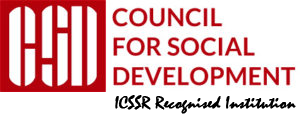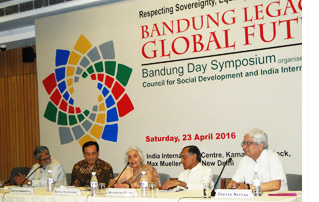Lecture Room I, India International Centre (Annexe), New Delhi
The Council for Social Development, New Delhi, the Centre for Agricultural Policy Dialogue, New Delhi and Swabhimani Shetkari Sanghtana of Maharashtra jointly organised a seminar, Liberating the Farmers from Debt Trap: Challenges of Policy Reforms in India. According to the 70th round of NSS data for 2012-13, a majority of Indian farmers do not earn enough to even meet their consumption needs. In time of drought or floods, their condition becomes even more miserable and desperate. And amongst the farmers the plight of the small and marginal farmers is the most vulnerable. Over the past 15 years, about 300,000 farmers have committed suicide.
The seminar raised some key issues:
- How do we revitalise the health of our economy and liberate farmers from a suffocating debt trap?
- What kind of policy reforms are needed to improve socio-economic conditions of farmers in various regions?
- What are key challenges facing the implementation of policy reforms?
To address some of these concerns, the following issues will be discussed:
- Alternative Models of Income and Social Security for Farmers
- Challenges of Agricultural Policy Reforms, including Agricultural Price and Market Reforms,
- Technology, Land Policy, Subsidies, Crop Insurance, and Credit Sector Reforms
- Challenges of Climate Change – Risk Mitigation and Adaptation Strategies.


